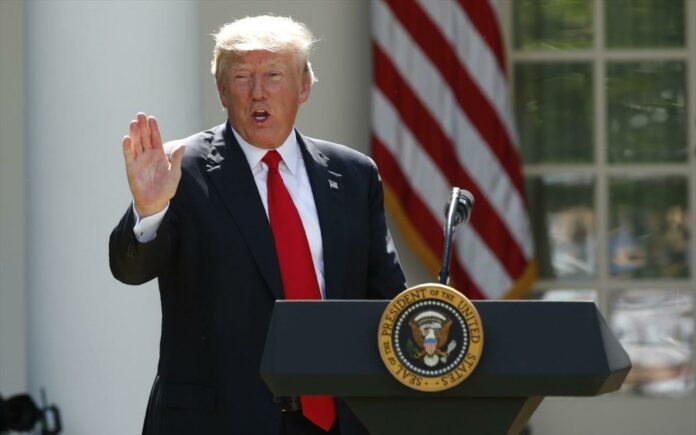Donald Trump’s controversial decision last week to pull the United States out of the landmark Paris climate change agreement found an ally in Greece: the union representing workers of the state-run power company, PPC.
The union, known as GENOP/DEI-KHE, has long been associated with militant unionism in the country and as a defender of the utility’s status as a state-run enterprise as well as a dogmatic opponent of any liberalization in the domestic energy market.
“In supporting and insisting, obviously, on his view that climate change is simply a ‘Chinese conspiracy’, Trump – four months after assuming office – announced that the US is suspending the implementation of binding conditions of the climate change agreement, and ending its contribution to the Green Fund (GCF) for climate … a superpower, the United States (… specifically the second in terms of highest emissions) leaves the remaining 195 countries to continue with a common (climate change) action plan, which was ‘inspired’ by some in order to … achieve an end to the era of fossil fuels,” was the eyebrow-raising statement by the Greek union.
The Public Power Corp. (PPC), which is listed on the Athens Stock Exchange (ASE), remains the dominant electricity supplier in the country, enjoying a nearly 90 percent market share, but now only producing approximately half of the power generated. Prior to 2015 lignite (brown coal) mined by PPC was used to fire plants that produced more than half of its power generation, although the percentage of lignite consumed in 2016 and 2017 has fallen.
Besides using high-emission producing lignite to fire its often outdated plants, PPC also burns low-quality mazut fuel oil in various small island power plants, given that most Greece’s numerous islands are still not linked with the mainland grid.














